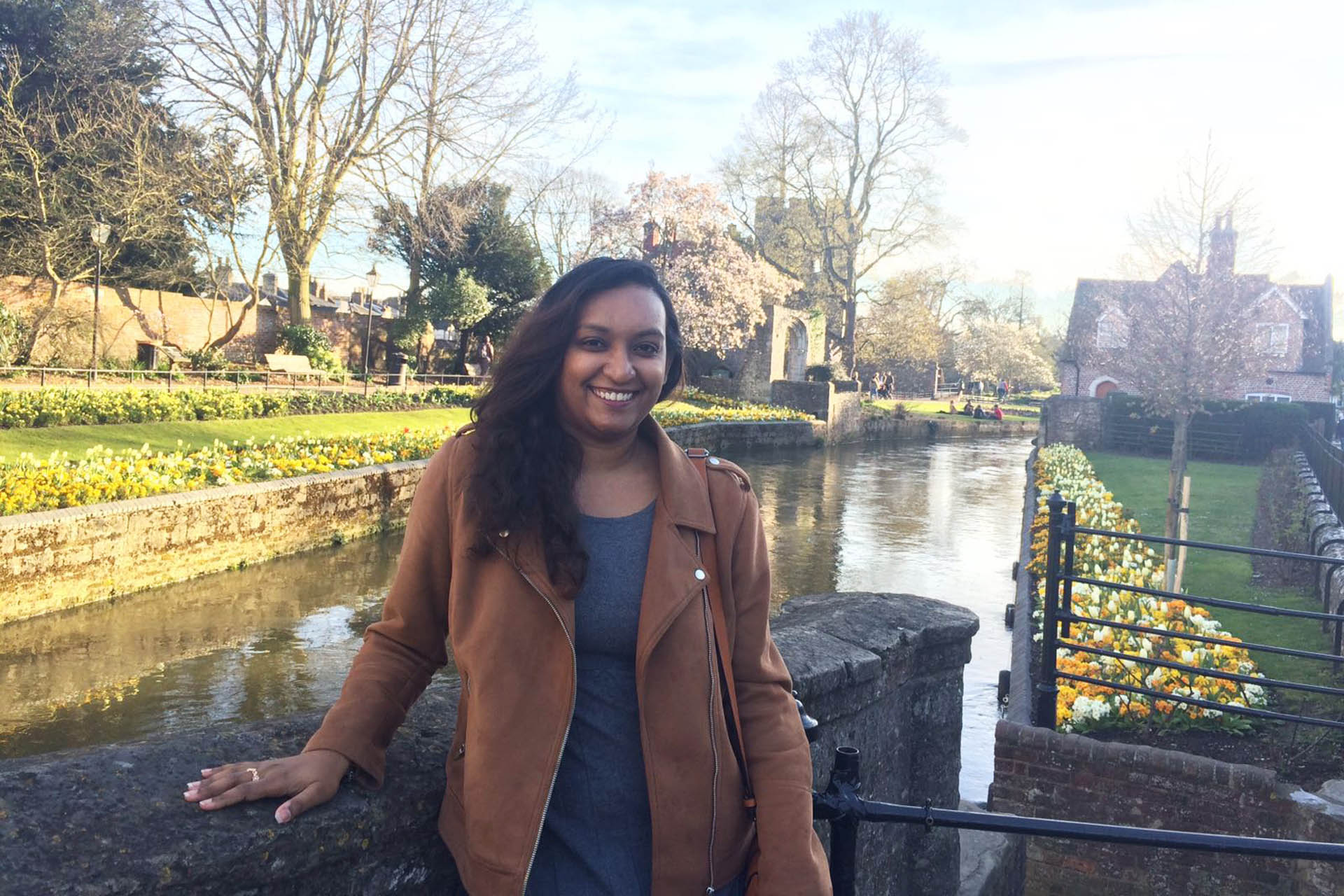MA Postcolonial Studies graduate, Rathiy Devi, recently participated in a panel about ‘The Value of the Humanities’ at Nanyang Technological University, Singapore. Rathiy currently works as the Head of English at a secondary school in Singapore. We caught up with Rathiy to find out more about her time at Kent, and what she has been up to since leaving.
What attracted you to studying MA Postcolonial Studies at Kent?
I was attracted to the MA in Postcolonial Studies at Kent for several reasons. The university’s commendable ranking in the field of English together with the esteemed faculty were the main pull factors in my decision in selecting Kent for my postgraduate degree. I was also particularly interested in the school’s focus on gleaning the intricate connections between modernist and postcolonial literature. It was obvious that embarking on an academic journey with the postcolonial studies centre in Kent would be illuminating and not restrictive. This fit my style of learning well and became a deciding factor in my choice.
Where has your career taken you since your MA at Kent?
I returned to the teaching profession with the Ministry of Education in Singapore upon my completion of the MA programme. Since then I have been appointed as the Subject Head for Literature in English and am part of the Key Personnel team within a local school that offers the GCE A Level examination for high ability learners.
Could you describe a typical day in your current role?
Being a teacher, most of my typical day is spent in the classroom. This is the space that I am most comfortable in and I look forward to my time there. I teach GCE A Level students aged between 16 to 18. However, being a middle manager, my job scope requires me to juggle roles outside of the classroom as well. I am responsible for engineering a vision for the teaching and learning of English Literature within the school. I manage and tend to the needs of the English Literature teachers in my team, giving feedback on their pedagogy and also helping them with the mapping of their careers. We have meetings in between lessons to ensure that everyone is on board with the vision and to ensure that there is a coherence in our teaching philosophies and approaches. I also collaborate with partners outside of school to help enrich the learning of my students. These collaborations take place online mostly now due to the pandemic. On top of my duties within the English department, I am also one of the teachers in charge of student leadership within the school. So I help to mentor student leaders during after-school hours. So a typical day would be me juggling with all of these roles!
What is your favourite memory from your time at Kent?
This is a difficult question because I have many favourite memories at Kent. My most favourite memory is spending autumn (a season I love!) on the grounds of the university campus. Being a city dweller all my life, my short stint at Kent was an escape into the idyllic countryside. So I treasure the memories of my many hikes and walks in the Garden of England! My other favourite memory is actually the amazing, weekly postcolonial seminars that the school organises. I remember meeting inspiring writers and experts in the field and engaging in epiphanic discussions and debates on the issues in question. This was an experience that will be etched in my mind for a long time. I also am particularly fond of the conversations I had with the faculty. They had an extremely inclusive, open door policy where I could arrange to meet and have conversations with them about my research interests, essays and the texts we were tackling during the modules. These discussions were humbling and inspiring. They were also very supportive of my research interests and ideas. I was always further affirmed of my decision to study at Kent after these sessions because the faculty goes above and beyond to enrich your learning experience.
How has your MA in Postcolonial Studies assisted in your career?
The confidence that Kent has given me in my content knowledge is integral in my career progression as a teacher of English Literature in a school with high ability learners. The MA redefined my style of writing and endowed me with an incisiveness in my expression that was previously not as obvious. On top of that, the rigour of the MA programme gave me depth in my thought and opened up new worlds of possibilities that I had previously left unexplored. This was crucial in my career as I feel that I am now mentally more agile. This has led to me contributing in creative ways with insights that are new and refreshing in all aspects of my career, even beyond the field of English.

